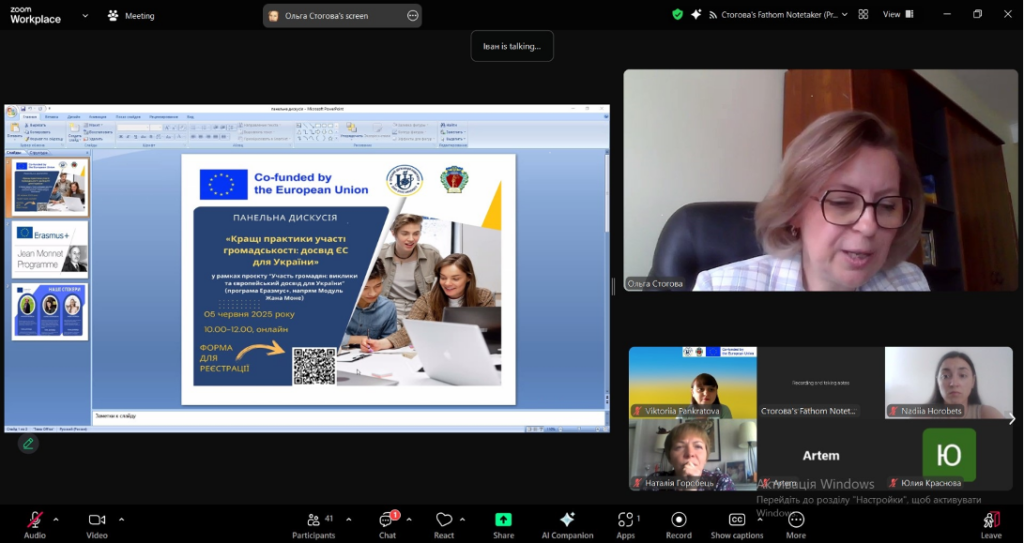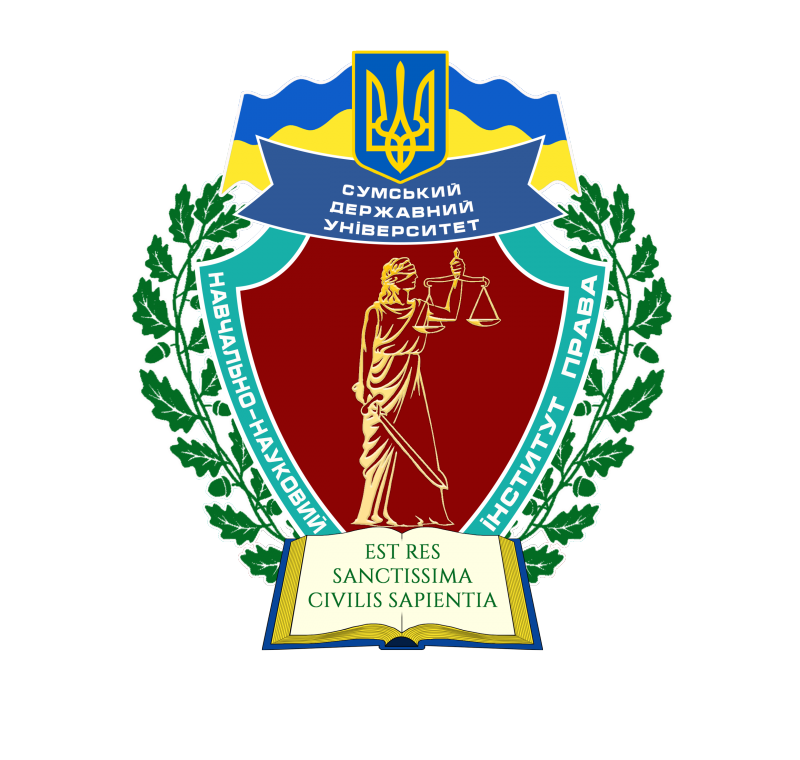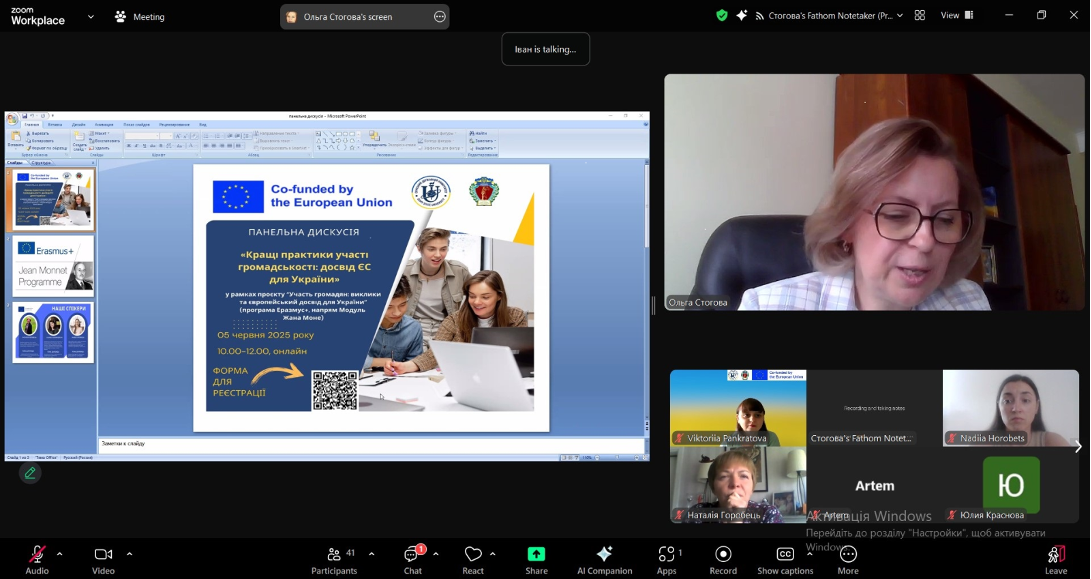On June 6, as part of the implementation of the educational project “Citizen Participation: Challenges and European Experience for Ukraine” EUPART4UA, a panel discussion on the topic “Best Practices of Public Participation: EU Experience for Ukraine” was held.
The event was held to raise awareness among Ukrainian citizens about public participation tools used in EU countries, to better understand and disseminate best European practices of citizen participation in Ukraine.
The following reports were discussed during the discussion:
Nataliya HOROBETS “Swedish Experience of Decentralization and Public Participation: A Practical View from the Inside”.
Nadiya HOROBETS “Citizens’ Right to Appeal: Experience of EU Countries and Ukraine”.
Raluka Onufreychuk “Citizen Participation in Central and Eastern Europe: Solutions of Innovative Government”.
The project team Olga Stogova, Viktoriya Pankratova and Nadiya Horobets presented the project “Citizen Participation: Challenges and European Experience for Ukraine”, which aims to raise citizens’ awareness of public participation tools in Ukraine. The discussion included presentations on the Swedish experience of decentralization, citizens’ right to appeal in EU countries and Ukraine, and civic participation in Central and Eastern Europe.
Natalia Horobets presented a detailed comparison of the Swedish and Ukrainian systems of decentralization, highlighting Sweden’s effective local government and the high level of social services financed by local taxes. She explained how Swedish communities, such as Christiania Stat, manage their budgets and provide basic services, including education, healthcare and social support, with a special focus on vulnerable populations and refugees. The presentation emphasized the activeness of Swedish citizens and trust in local governments. The speaker noted that local residents can influence government decisions through the following tools: local elections, participatory budgeting, and direct communication with officials.
Nadiya Horobets presented a detailed overview of the right to appeal in Ukraine and other countries, highlighting its historical development and current legal framework. She compared different forms of appeals, including proposals, statements, petitions, and complaints. Nadiya also compared the right to appeal in different European countries, noting differences in terminology and approaches to regulation. Finally, the speaker highlighted Finland’s progressive experience in the use of electronic petitions and legislative initiatives.
Raluka Onufreychuk presented public participation in Central and Eastern European countries, focusing on how new technologies and the Open Government Partnership (OGP) have affected transparency and public engagement. The speaker noted that many countries have joined the OGP initiative, but the success of its implementation varies significantly, while Hungary and Poland, which are not participating in the program, have high levels of public trust. Raluka emphasized that post-communist transition states often focus on developing legal frameworks but fail to develop their functionality. Raluka discussed the challenges and progress of implementing open government reform at the local level, highlighting the decline in the number of cities participating in the Open Government Partnership after initial enthusiasm and support. The speaker emphasized the importance of involving technology in implementing effective reforms, citing successful examples such as the Citizen Lab platform in Belgium and the Decid City platform in Madrid, which use artificial intelligence and machine learning to increase citizen participation and government transparency. The report emphasized that AI-based platforms are more convenient and effective, offer better navigation and quick access to relevant information for citizens. Participation mechanisms and digital tools in Eastern European countries were presented, highlighting Romania’s experience with initiatives involving AI bots. The panel discussion concluded with an analysis of the regulatory framework of Ukraine regarding citizen participation and the need for effective use of existing tools.






